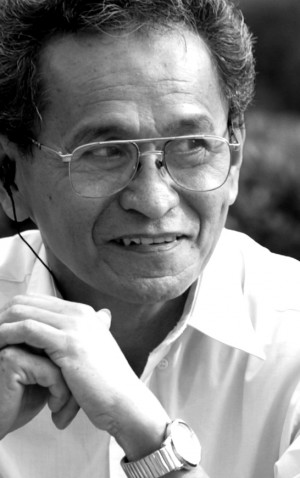Kill the excise tax, not the poor with higher prices

Fernando Fajardo
What the government should do instead is to tax the sale of cars, with rates going up the more expensive the units. Then charge them with higher road user’s fee when they register their cars.
Early this week, ABS-CBN Cebu asked me if it would be beneficial to suspend the excise tax on petroleum products.
My response was yes. I then proceeded to explain my point this way.
This year the Train Act imposed an excise tax of P2.50 per liter on diesel.
That will go to P4.50 next year and P6.00 in 2020.
On gasoline, the excise tax is increased from the previous P4.35 per liter to P7.00 this year, then to P9.00 next year, and P10.00 by 2020.
Diesel and gasoline are used in land, water, and air transport.
Our transport expenses now account for about 8 percent or more of our average household expenditures.
Rich and poor alike, the excise tax on oil is hurting us directly but most especially the poor who are not benefited by the increase in income exempted from income tax under the Train Act.
But the worst part is the multiplier effect of the excise tax on oil.
For example, fishermen used diesel when they go fishing and bringing their catch to the fish landing areas, thus making fish more expensive to consumers.
Note that almost everything sold in the market, from fish to meat, fruits and vegetables, rice and corn, etcetera, are transported to the market from their source and, therefore, affected also by higher transport costs.
The government says that most of the petrol sold in the country are consumed by the rich in using their cars and the president’s economic team used this to justify the excise tax.
They forget that this shot-gun approach of punishing the rich also hit the poor who have no means to deflect the bullet.
If I were rich or using a company or government car, do I care if the price of gasoline or diesel is increased?
What the government should do instead is to tax the sale of cars, with rates going up the more expensive the units.
Then charge them with higher road user’s fee when they register their cars.
These partly solve also our traffic and air pollution problems.
Now, if may add, the excise tax when collected by the government is to a producer or seller an added costs in doing business.
When business is costly to do, this means in economics like shifting the firm’s supply curves upward to the left.
If what is produced is inelastic in demand (steeper demand curve) then the obvious result is for the price of that product to rise.
In fact, the price of the product can go as high as the excise tax per unit if demand is completely inelastic (vertical demand curve).
If the demand for the product is elastic (flatter demand curve), then the result of the increase in the cost of doing business (leftward shift of the supply curve) is lower output and less demand for workers on the part of the firm.
Like the increase in price, this is not good too.
In the aggregate, an increase in the overall costs of doing business, is like shifting our aggregate supply curve to the left which leads to a general increase in prices or inflation.
The more inelastic the aggregate demand, the higher would be the inflation rate.
If elastic, then the economy will also suffer from lower GDP growth, if not negative, leading to higher unemployment or underemployment rates.
The interest rate is now pushed higher by the BSP to fight inflation.
This is another interesting topic to discuss next time.
Who wants high interest rates?
Disclaimer: The comments uploaded on this site do not necessarily represent or reflect the views of management and owner of Cebudailynews. We reserve the right to exclude comments that we deem to be inconsistent with our editorial standards.
